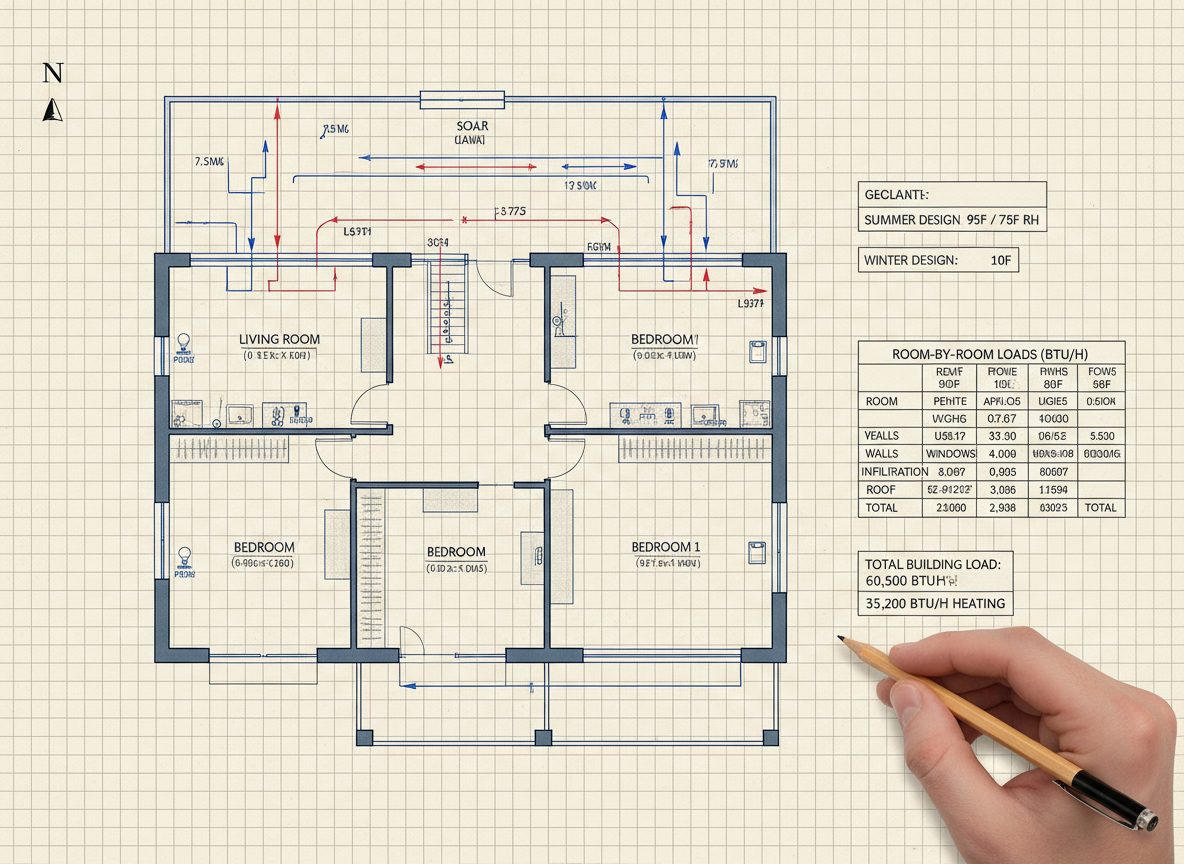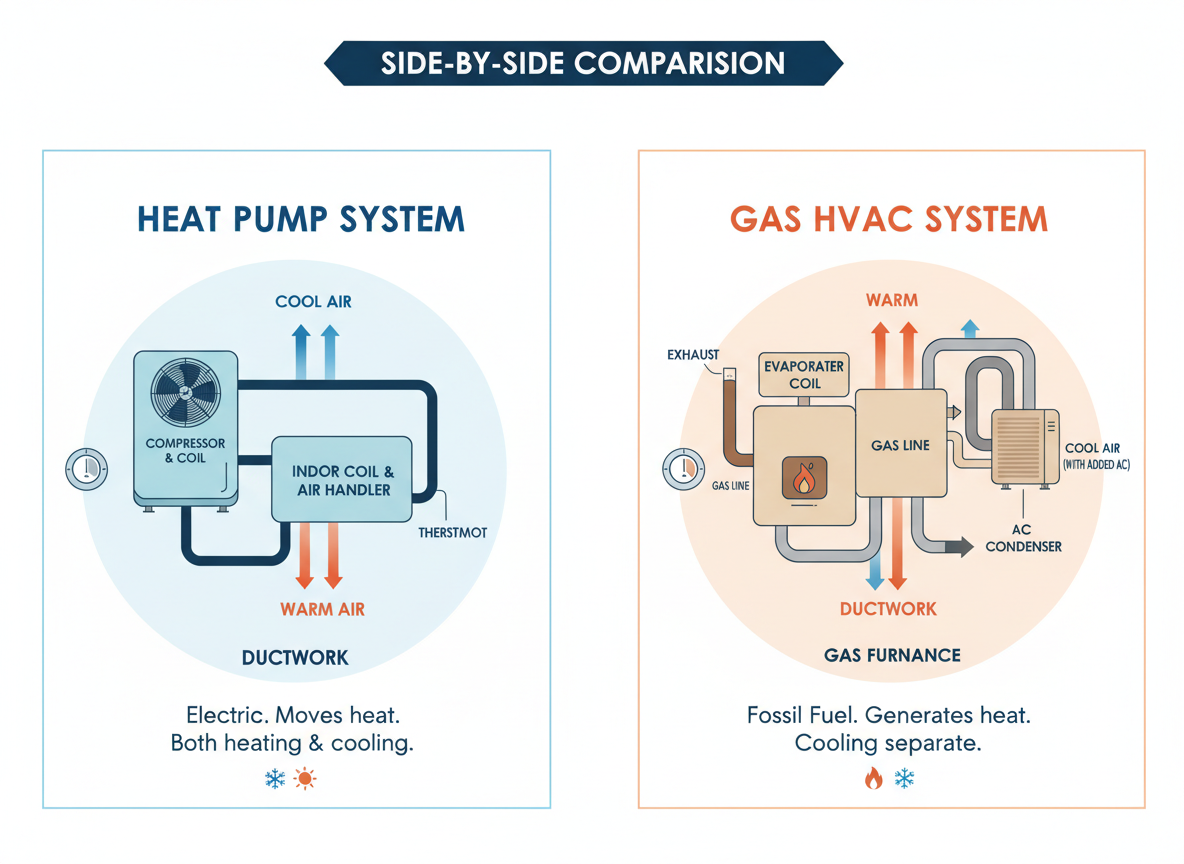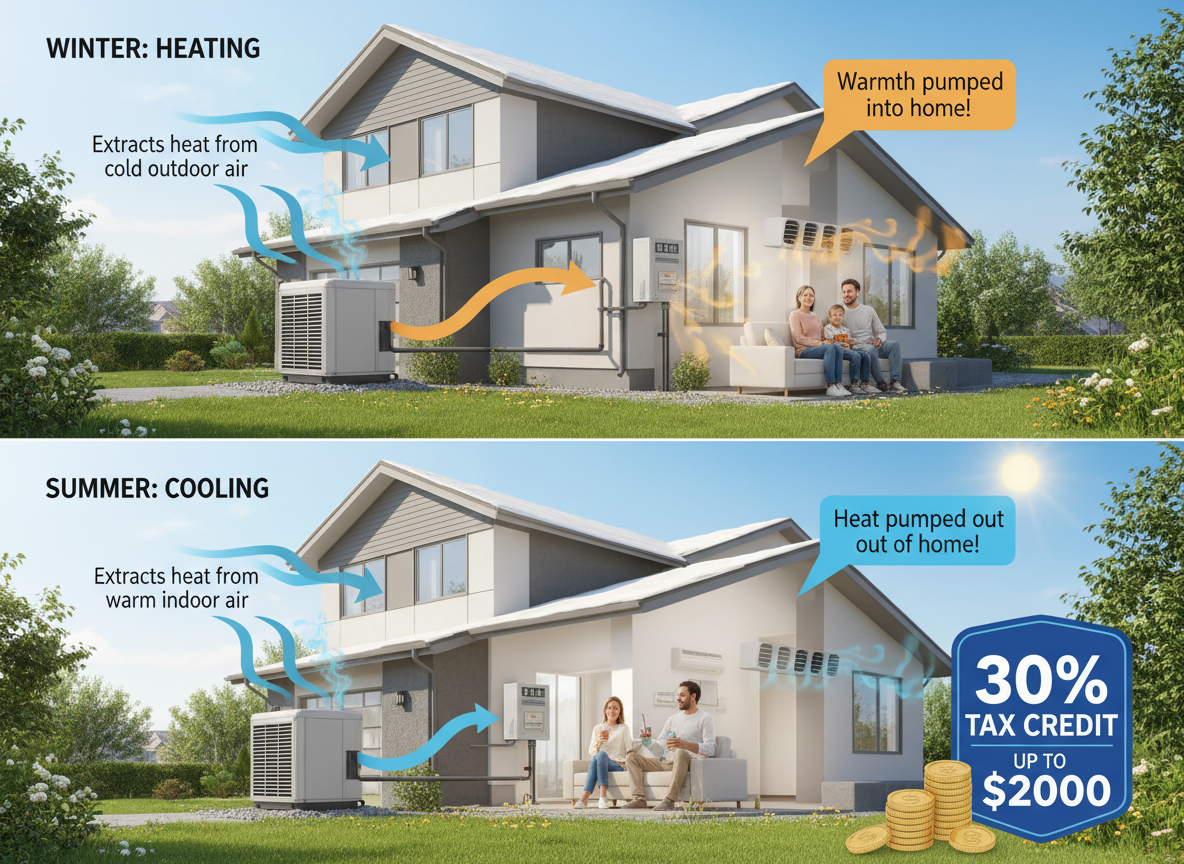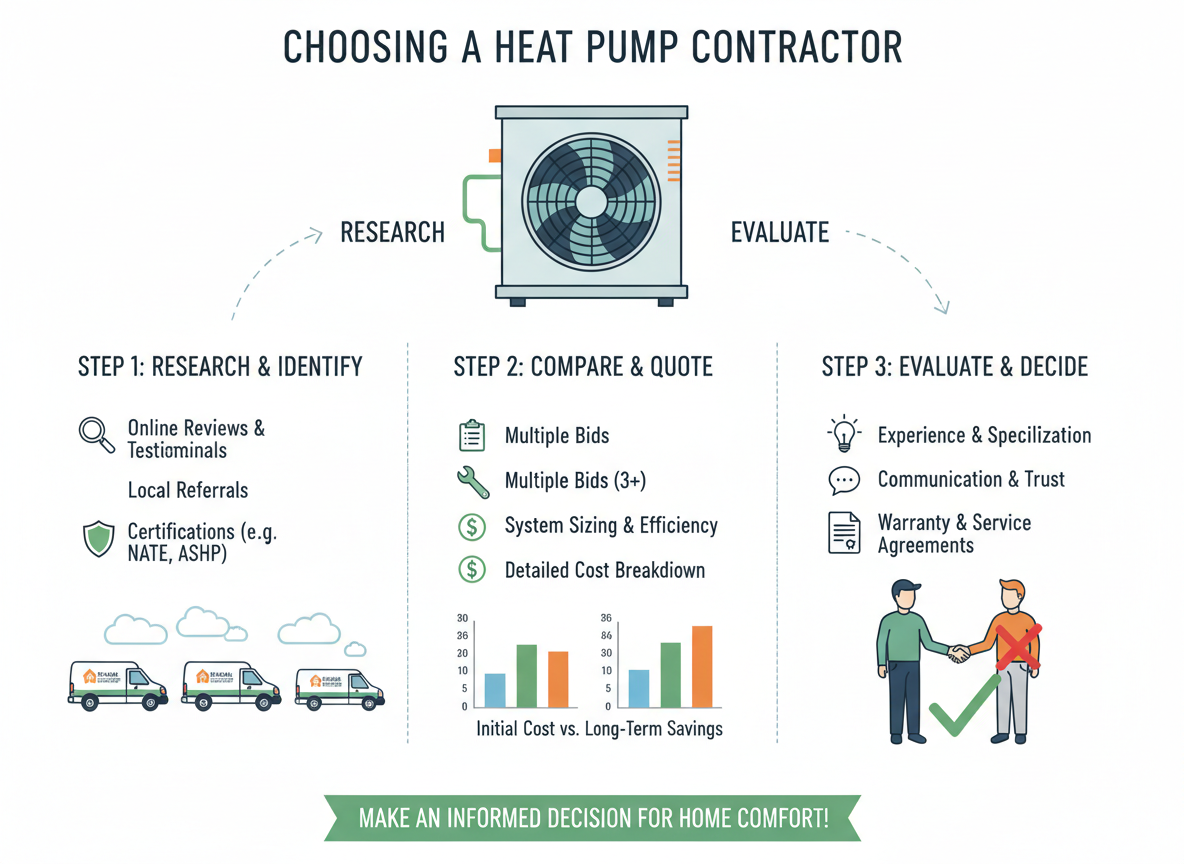
What is an inverter heat pump? Inverter heat pump technology has revolutionized the way we manage heating and cooling in our homes and commercial spaces. By integrating energy efficiency, precise temperature control, and environmental sustainability, this technology is now a preferred choice for many households. In this article, we'll break down the fundamentals of inverter heat pump technology, its benefits, and why it’s becoming a go-to option for HVAC systems when completing AC replacement.
How Inverter Heat Pump Technology Works
A traditional heat pump operates by transferring heat from one location to another—whether it's extracting heat from the air outside to warm your home in winter or expelling warm air to cool your space in summer. What makes inverter heat pumps distinct from conventional systems is the way they manage the speed of the compressor motor.
In a non-inverter heat pump system, the compressor works at a fixed speed, meaning it turns on at full capacity when heating or cooling is needed and shuts off when the desired temperature is reached. This on-off cycling can lead to energy inefficiency and inconsistent indoor comfort levels.
In contrast, an inverter heat pump uses a variable-speed compressor. The inverter technology continuously adjusts the compressor speed to match the demand. For example, instead of switching off when the room reaches the set temperature, the compressor slows down but keeps running, maintaining the desired temperature more precisely and efficiently. Inverter heat pumps are available from various manufacturers, each offering unique features and benefits. It’s essential to find research and compare different models to find the one that best suits your specific needs and budget.
Key Benefits of Inverter Heat Pump Technology
1. Energy Efficiency The most significant advantage of inverter heat pumps is their ability to reduce energy consumption. Inverter technology allows the heat pump to adjust its operating speed based on the heating or cooling demand, resulting in more efficient energy consumption. The system avoids the energy spikes associated with starting up and shutting down, which can save homeowners up to 30% more on their energy bills compared to non-inverter systems.
2. Improved Comfort With an inverter system, you get more accurate and consistent indoor temperatures. The system modulates its output to prevent the sudden temperature swings common with traditional systems. This leads to increased comfort, with fewer temperature fluctuations especially in spaces with variable heating or cooling demands.
3. Quieter Operation Since the compressor doesn't need to constantly turn on and off, inverter heat pumps generally operate more quietly. This is particularly beneficial for residential areas where noise levels can be a concern.
4. Longer Lifespan The variable-speed operation reduces wear and tear on the compressor because it avoids the stress of constant start-stop cycles. As a result, inverter heat pumps tend to have a longer operational life, reducing the need for frequent AC replacements.
5. Environmental Impact Inverter heat pumps often use eco-friendly refrigerants and, due to their energy efficiency, reduce carbon emissions associated with heating and cooling. This makes them a more sustainable choice, especially as the world shifts towards greener technologies.
6. Wider Operating Range Inverter heat pumps can operate effectively in a wider temperature range, making them suitable for various climates.
7. Potential for Zoning Some inverter heat pumps can be integrated with zoning systems, allowing for more precise temperature control in different areas of your home.
8. Government Incentives In many regions, government incentives or tax credits are available for the installation of energy-efficient heating and cooling systems like inverter heat pumps.
Things to Keep in Mind about Heat Pump Inverter Technology
Inverter heat pumps offer significant energy efficiency and comfort benefits. However, a successful installation requires careful consideration. By carefully considering these factors, you can ensure a successful installation and enjoy the benefits of an inverter heat pump for years to come. Here are some key factors to keep in mind:
1. Professional Installation:
- Expertise: Hiring a qualified and licensed HVAC company is crucial for proper installation and optimal performance.
- Warranty: Ensure the installation meets the manufacturer’s warranty requirements.
2. Maintenance:
- Regular checkups: Schedule regular maintenance to keep your inverter heat pump operating efficiently.
- Air filters: Clean or replace air filters as recommended by the manufacturer.
3. Sizing and location:
- Proper sizing: ensure the heat pump is sized appropriately for your home’s square footage and heating/cooling needs. Oversizing or under sizing can lead to inefficiency and discomfort.
- Outdoor location: Choose a location with unobstructed airflow for the outdoor unit. Avoid areas with dense trees, buildings, or other obstacles that can hinder discomfort.
4. Electrical Requirements:
- Circuit capacity: Verify that your electrical system can handle the increased load of an inverter heat pump with the installer.
5. Ductwork:
- Condition: Ensure your ductwork is in good condition and free of leaks. Poor ductwork can reduce efficiency and affect temperature distribution.
6. Insulation:
- Adequate insulation: Ensure your home has sufficient insulation in the walls, attic, and crawl spaces. This helps prevent heat loss in the winter and heat gain in the summer, improving the efficiency of your heat pump.
- R- Value: Consider the R-value of your insulation. Higher R-values indicate better insulation performance. Consult with a professional to determine the appropriate R-value for your region.
7. Backup Heat:
- Climate: In regions with extreme cold, a backup heat source may be necessary to provide sufficient heat during cold periods.
8. Smart Thermostat:
- Compatibility: Consider using a smart thermostat compatible with your inverter heat pump to maximize energy savings and comfort.
Contact LA Heating and Air
Inverter heat pumps offer a highly efficient and comfortable heating and cooling solution. By carefully considering factors and with quality installation you can maximize the benefits of this technology. To ensure successful installation and optimal performance, it’s essential to work with a qualified HVAC professional. Contact LA Heating and Air today for a free consultation and to learn more about how an inverter heat pump can enhance your home’s comfort and energy efficiency.
What is an Inverter Heat Pump? Related Posts:






















.png)














